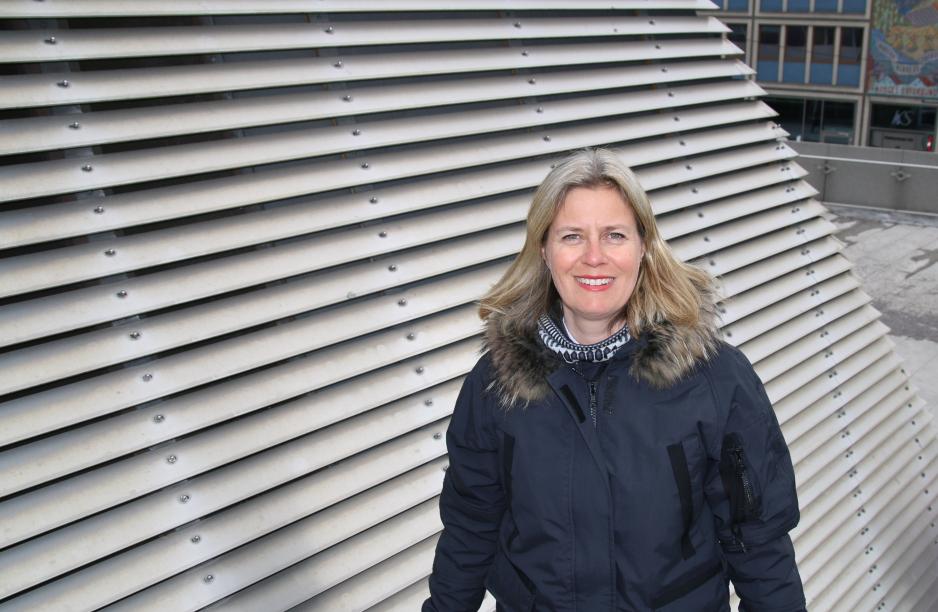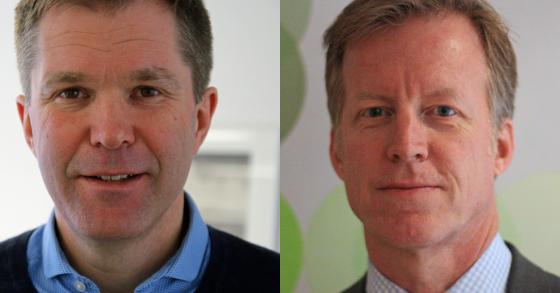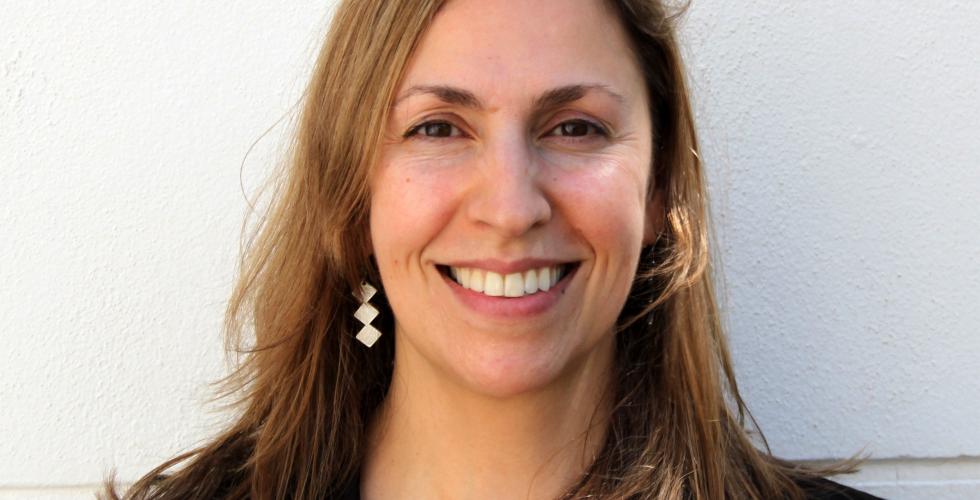EU urged to strengthen gender objectives
The Research Council of Norway and the Committee for Gender Balance and Diversity in Research have written a letter to the Ministry of Education and Research. Their message is clear: Don’t forget gender equality.
“The work to develop the EU Ninth Framework Programme for Research and Innovation is underway. Norway has already submitted two position papers to the programme. Neither of them clearly states that the new framework programme must continue Horizon 2020’s focus on gender balance and gender perspectives in European research and innovation.”
This statement opens the letter sent to the Ministry of Education and Research on 5 March 2018. Curt Rice, Chair of the Committee for Gender Balance and Research (the KIF Committee), and John-Arne Røttingen, Chief Executive of the Research Council, have teamed up to urge the Ministry of Education and Research to address gender in research in the EU’s new research programme, FP9.
Norway has been invited to submit written comments to the EU’s new research programme. So far, the Norwegian government has sent two position papers – one on the thematic priorities and the other on the green energy shift. Neither addresses the issue of gender perspectives and gender balance in research and innovation.
Imbalance increasing
In 2021, FP9 will replace the current programme, Horizon 2020, which has put more focus on gender perspectives and gender balance than previous framework programmes. The positive efforts must continue, according to Rice and Røttingen. In their letter, they ask the Ministry of Education and Research to encourage the EU to place even more emphasis on gender in research and innovation.
“Under the EU programmes, it is men who still receive the most money for research and innovation projects. She Figures 2015 even shows that the imbalance is increasing,” says Røttingen.
Horizon 2020 has announced more funding for projects that study why male researchers continue to receive the most money.
“Must have a better effect”
Regarding the question of why he and Rice have written the letter, Røttingen responds:
“We want the European Commission to give gender balance and the gender dimension in research and innovation in FP9 even more emphasis than it did in Horizon 2020. This is so we can have a real impact in the near future on quality, relevance and social benefit in European research,” says Røttingen.
“How do you think gender balance and the gender dimension have been prioritized in Horizon 2020 so far?”
“Gender equality is one of six prioritized areas, and gender topics have been relatively high on the agenda with three main objectives: gender balance in research teams, more women in research management, and finally, integration of the gender dimension in research and innovation.”

“Gender ensures the quality of research”
As secretary for the KIF Committee, Heidi Holt Zachariassen, together with Lise Christensen of the Research Council, has written the letter from KIF to the Ministry of Education and Research. She believes that research quality is enhanced by incorporating the gender dimension.
“It doesn’t help to study only one gender. You must test and find effects on both women and men. The research becomes broader and relevant for more people. For instance, if you conduct medical tests on men only, you won’t get answers about the entire population,” she explains.
When Zachariassen saw that gender has been discussed in several EU member countries, and that Sweden had submitted comments on gender balance and the gender dimension to the EU Ninth Framework Programme, she wanted to raise the issue at home as well. As a country that prioritizes gender equality, Norway has an obligation to bring the matter to the forefront, she believes:
“In one of the two position papers from the Ministry of Education and Research, gender is mentioned briefly, but neither insists that the objectives from Horizon 2020 are continued.”
Nothing about gender
Zachariassen explains that the ERA Roadmap – the European Research Area’s plan to promote Europe as a joint research area – has established gender as a separate priority, which Norway has also signed onto. In FP9, the plan is to identify a set of primary objectives that will have major societal implications. These objectives, such as “plastic-free oceans” and “100 carbon-neutral cities by 2030” will be called “missions”. But in a new report on EU missions, neither the gender dimension nor gender balance was mentioned.
Read more about the ERA Roadmap: Puts gender equality on the map
“The report, which was written by Mariana Mazzucato at the request of the European Commissioner Carlos Moedas, says nothing about ‘women’, ‘diversity’ or ‘gender’. This is disturbing, because the report sets out important principles about what will be researched under the new framework programme.”
“Norway is a leader in gender equality”
The reason that the KIF Committee and the Research Council are now working together is that both institutions want Norway to be a driving force for gender balance and gender perspectives in European research.
“We are cooperating closely on the same objectives, both to improve gender balance and to promote the use of gender perspectives. The Research Council has its own BALANSE programme which, among other things, has set aside money to get more women in senior-level positions at various research institutions,” says Zachariassen.
Røttingen explains the reason for cooperating like this:
“Norway is seen as, and aims to be, a leader in the work for gender equality, including in the research field. This is the mandate of both the KIF Committee and the Research Council. We want to put gender balance and the gender dimension on the agenda. This is an important topic, both in our own work and in the EU framework programme.”
“Wish the EU would focus even more on gender”
Røttingen wants Norwegian research groups to see the potential in the EU framework programme. Although the gender balance could be better in senior-level positions in the Norwegian research sector, Norway has a long-standing tradition of taking gender into account in research. For example, Norway is a partner in Horizon 2020’s GENDER-NET Plus Cofund, which awards funding to cooperative projects on gender.
“It’s important to us that gender balance and the gender dimension are implemented in the EU framework programme, not just because this will promote gender equality, but also because it will bring change to institutions and improve the programme’s results. Ultimately, gender equality will improve the European economy, and thus the Norwegian economy as well,” says Røttingen.
Zachariassen is eager to see how the letter is received within the Ministry of Education and Research, and what may happen moving forward.
“Now the ball is in their court.”
“What kind of expectations do you have of the EU?”
“We want to see them continue the objectives from Horizon 2020 and include gender requirements in the ‘missions’. I wish they had been even more ambitious and used even more money to advance gender balance and gender perspectives in European research. That is the least we are hoping for,” says Zachariassen.
Kifinfo has been in touch with the Ministry of Education and Research, but the ministry wants to respond to the Research Council and the KIF Committee before making any statements to the media.
Translated by Connie Stultz.
European cooperation on research and innovation is one of the major successes of the European project. Horizon 2020 is an ongoing research programme which began in 2014 and will conclude in 2020.
Planning for the EU Ninth Framework Programme (FP9) is already underway. Science Europe represents both the public Research Performing Organizations (RPO) and the Research Funding Organizations (RFO), which have years of experience in setting up world-class research programmes. Members of Science Europe have one goal: to provide funding and share responsibility for the management of national public research in Europe.
Source: EU/ScienceEurope.org
The Research Council of Norway and the KIF Committee sent a joint letter to the Ministry of Education and Research on 5 May 2018:
Gender balance and gender perspectives in the EU Ninth Framework Programme for Research and Innovation (in Norwegian only)
Norwegian position paper on gender – the EU Framework Program for Research and Innovation (FP9) (Attachment to the letter)


